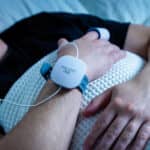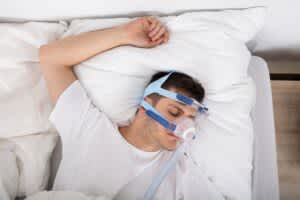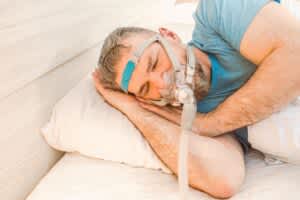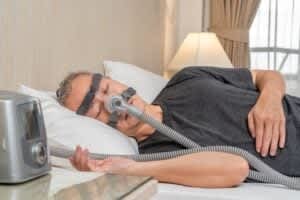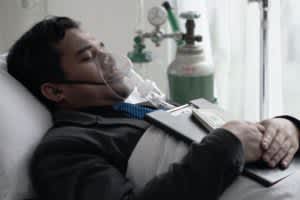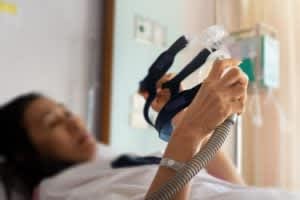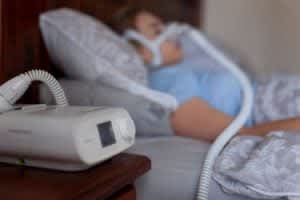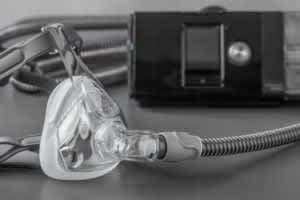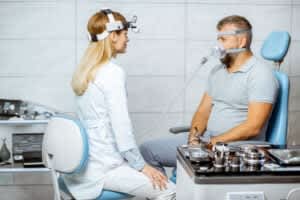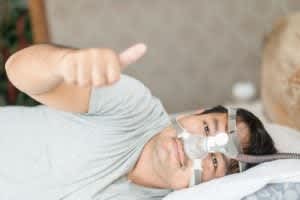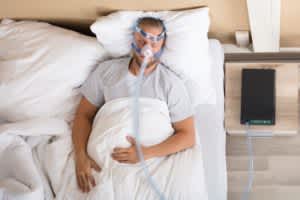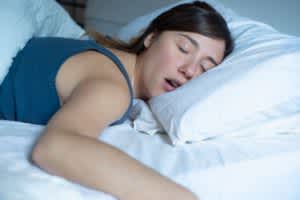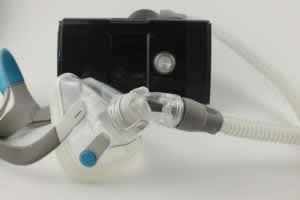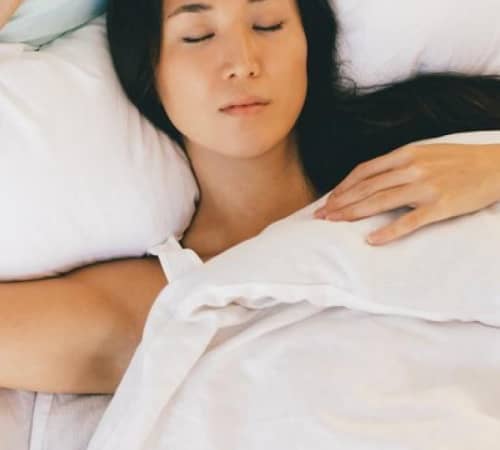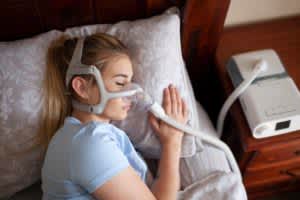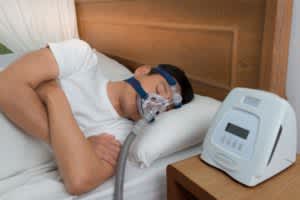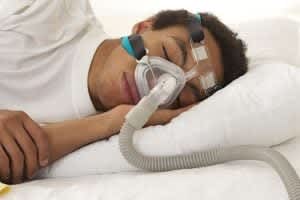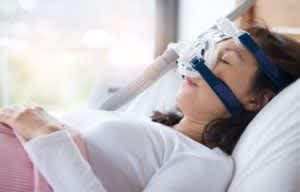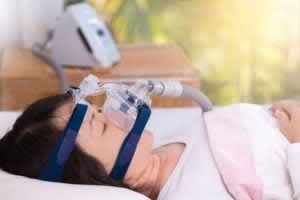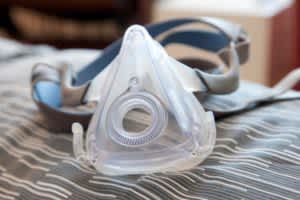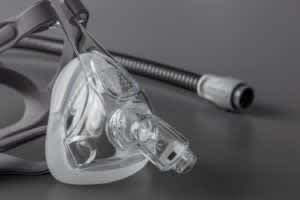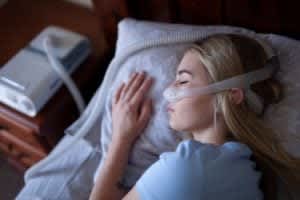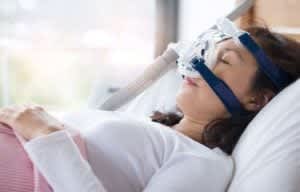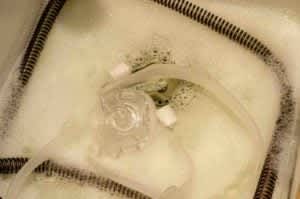When you buy through our links, we may earn a commission. Products or services may be offered by an affiliated entity. Learn more.
Do You Need a Prescription For a CPAP Machine?
Sleep apnea is one of the most common sleep disorders in the United States. While lifestyle changes can help improve your sleep apnea symptoms in the long run, many doctors turn to continuous positive airway pressure (CPAP) therapy as a treatment option.
If you’re thinking about trying a CPAP machine, you’ll need a formal prescription from your doctor before you can buy a CPAP machine. Although CPAP therapy is relatively safe and one of the most effective ways to treat the symptoms of sleep apnea, you’ll need to make a trip to the doctor’s office first.
We’ll cover why you need a prescription to buy a CPAP machine, how to get a CPAP prescription, and where you can shop for CPAP equipment.
Suspect You May Have Sleep Apnea?
Answer three questions to understand if you should be concerned.
Why a Prescription Is Necessary
Although CPAP machines pose little risk of abuse, a prescription requirement ensures that your CPAP therapy will be safe and customized to your needs. In 2018, the FDA reclassified CPAP machines from Class III to Class II medical devices.
With this change, officials at the FDA hoped to break down regulatory hurdles, encourage product innovation, and improve access for patients. But even with the new designation, you’ll still need a prescription from your doctor before you can buy a CPAP machine and begin CPAP therapy.
If you’re experiencing any of the signs of sleep apnea, make an appointment with your doctor to discuss your symptoms. It may seem like a hassle, but requiring a prescription to buy a CPAP machine is actually in the best interest of patients. Your doctor can determine your diagnosis and write you a prescription for CPAP therapy. Once you have a CPAP prescription, you can begin shopping for the best CPAP machine.
When you consult with your doctor before starting CPAP treatment, you’ll have a better understanding of:
- Your sleep apnea diagnosis (there are different types)
- The best type of unit for your needs (CPAP, BiPAP, or APAP)
- The best cpap mask and delivery system for your needs
- The right pressure setting for your symptoms
- When to replace key accessories
This oversight by a medical professional should improve the efficacy of your treatment. Without the guidance of your doctor, CPAP therapy may fail to improve your symptoms. Additionally, a prescription allows you to receive reimbursement through your health insurance plan for your CPAP unit and other necessary CPAP accessories.
Be wary of any retailers willing to sell you a CPAP without a prescription. The CPAP units they’re selling may not be FDA-approved.
Not Sure if You Have Sleep Apnea? Try an At-Home Test
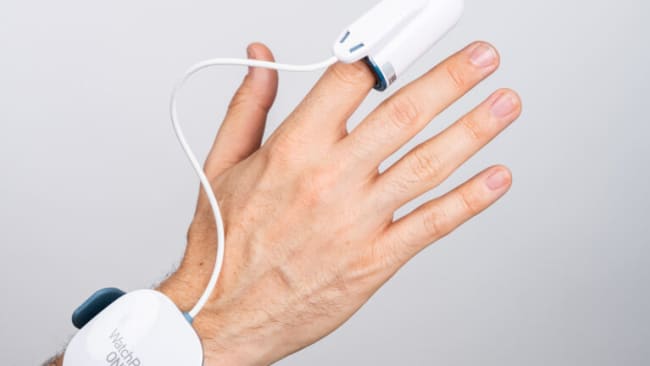
our partner at sleepdoctor.com
Save 54% on your Sleep Test Today
Shop Now“Truly grateful for this home sleep test. Fair pricing and improved my sleep!”
Dawn G. – Verified Tester
How Do You Get a CPAP Prescription?
Getting a CPAP prescription starts with recognizing the symptoms of sleep apnea and making an appointment to see your doctor. Obstructive sleep apnea (OSA) is the most common type of sleep apnea. Symptoms include:
- Frequent and severe snoring
- Disrupted breathing
- Awakening with gasping or choking
- Frequent awakenings
- Nighttime restlessness
- Sleepiness during the day
- Morning headaches
- Changes in mood
A less common form of sleep apnea is central sleep apnea (CSA). Because the airway isn’t physically blocked as in OSA, the symptoms of CSA can be harder to recognize.
If you’re experiencing any of the symptoms associated with sleep apnea, schedule an appointment with your doctor. It’s easiest to start with your primary care physician. They can evaluate your symptoms and refer you to a sleep specialist, if necessary.
Any medical doctor, including your primary care doctor, can write you a prescription for CPAP therapy. However, a sleep specialist will be able to administer a detailed sleep study. Self-reported symptoms are a useful starting point, but the results from a sleep study give a more detailed picture of your symptoms.
A sleep study is an overnight clinical test also known as a polysomnography. Sleep specialists often perform a polysomnography at a sleep clinic, but some doctors administer a simplified version that can be performed in your own home.
A polysomnography typically measures multiple physical indicators such as heart rate, breathing, oxygen levels, respiratory effort, eye movement activity, muscle activity, and electrical activity of the heart and brain as you sleep.
Once you’ve completed your sleep study, your sleep specialist will analyze the results, determine your diagnosis, and decide the best course of treatment. If you’re diagnosed with sleep apnea, you can receive a CPAP prescription.
Where Can You Purchase CPAP Equipment?
Once you’ve received your prescription for CPAP therapy, you can begin to shop for a CPAP machine and other CPAP equipment. You can find CPAP systems for sale through a number of suppliers including:
- Your insurance provider
- A local sleep clinic
- Online vendors
- Brick-and-mortar medical equipment retailers
If you choose to get a CPAP unit through your insurance, it’s important to note that some providers only allow you to rent your CPAP unit. And while brick-and-mortar stores allow you to look at items in person before you buy, they often have a limited selection.
Online vendors tend to offer superior selection and competitive prices. Additionally, many online vendors offer generous return policies that enable you to return any equipment that you’re not satisfied with.
Remember, that even when you shop online, you’ll still need a prescription for your CPAP unit. Most online vendors specializing in CPAP equipment make the process easy. You can typically email, upload, or fax a copy of your prescription. Keep in mind that you’ll also need a CPAP prescription to purchase many necessary CPAP accessories like masks and humidifiers.

Still have questions? Ask our community!
Join our Sleep Care Community — a trusted hub of product specialists, sleep health professionals, and people just like you. Whether you’re searching for the perfect mattress or need expert sleep advice, we’ve got you covered. Get personalized guidance from the experts who know sleep best.


